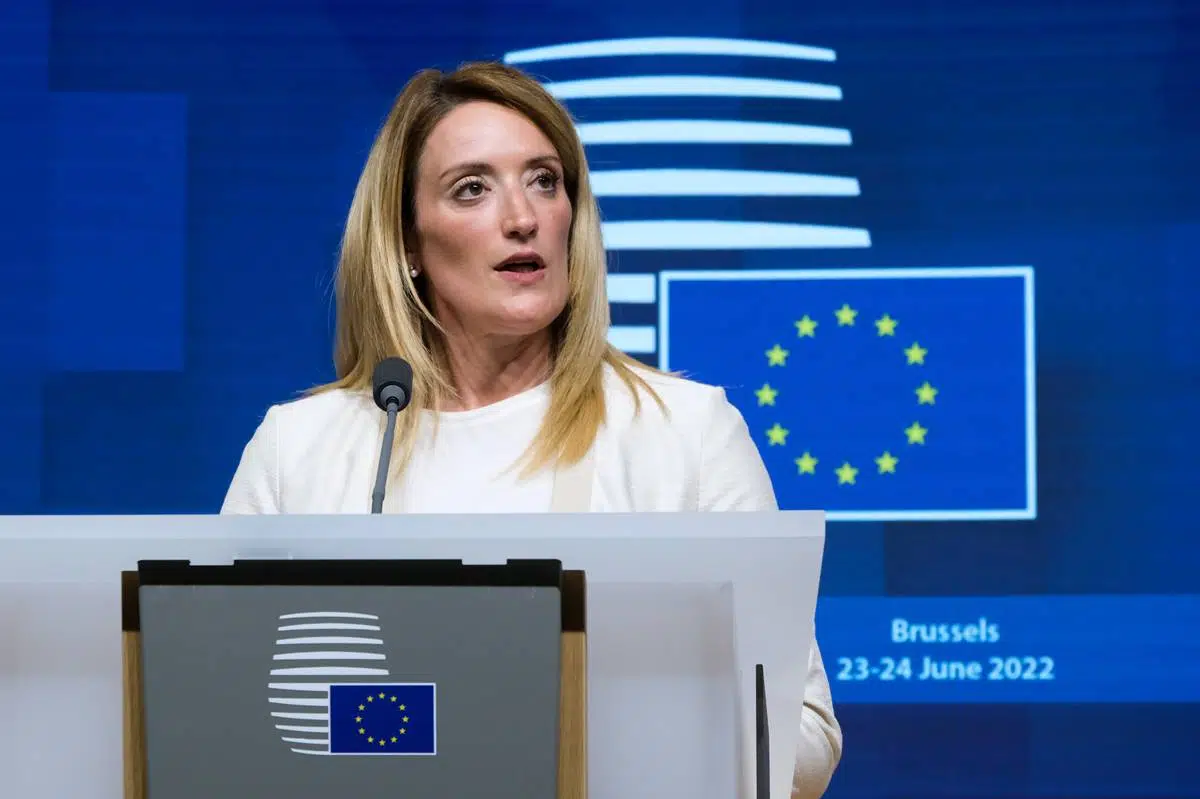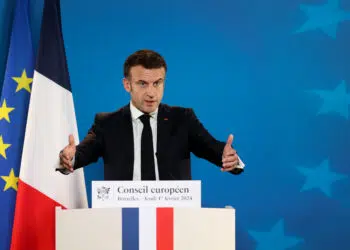Strasbourg, from our correspondent – The Green Pact for Europe, the European Green Deal, cannot be “something only for those who can afford it.” According to Roberta Metsola, the next European legislature will require more effort by European institutions to monitor “the effects of our decisions” not only “on the economy and greenhouse gases” but on people.
In a plenary session dominated by farmers’ protests and fears of the effects of the transition, the European Parliament President takes stock with Eunews of an expiring legislature, looking ahead to the challenges the new institutional cycle will bring after the June 6-9 European elections. “Monitoring” the implementation of the Green Deal, but not just that: For the president of the Eurochamber, “if necessary,” it will need to be “adjusted.” Meanwhile, she encourages everyone to go to the polls. “It is the best way to achieve change.”
Eunews: 2024 will be a crucial year for the European Union. In June, Europeans will be asked to elect a new Parliament. Do you think the so-called Ursula majority between Populars, Socialists, and Liberals will be confirmed, or do you see possible alternatives?
Metsola: “We need to make sure that Europe can deliver. And this means that we need to strengthen the constructive pro-European forces, who are working in the best interests of Europeans.
During this parliamentary term, we have successfully adopted landmark legislation on the joint procurement on vaccines, on the green and digital transition, on Artificial Intelligence, energy independence, as well as found an agreement on the migration and asylum pact. We have delivered. But everything is not perfect. We need to admit that too, and work to make our Union better and stronger.
And this is where everyone will have a role to play. Voting in the European elections in 2024 is critical. It is critical that in June Europeans express their views and decide on the future direction of the European Union, our common future. What kind of Europe we will see after the elections ultimately depends on you. This is why every vote really matters. And why I encourage everyone to vote. This is the best way to affect any change.“
E.: Will you run for elections?
M.: “I am candidate for my re-election as Member of the European Parliament in Malta, my home country. As President of the European Parliament I am now travelling to all Member States to promote the elections and encourage citizens to vote, explaining why voting is so important. Why democracy and Europe cannot be taken for granted. This, together with the finalisation of legislation, is my priority for now.“
E.: Speaking of the Green Deal, the February plenary session was dominated by farmers’ protests and their fears about the effects of the transition. What will happen to the Green Deal for Europe in the next legislature?”
M.: “This legislature has set out a very clear and ambitious target for Europe to become the first climate neutral continent by 2050. The bulk of the European Green Deal legislation has been adopted and this will provide the necessary foundations for our green transformation. For the green deal to become a reality, it has to work for everyone. It must spur our economy and it must be realistic to get the buy-in of our citizens. It cannot be something only for those who can afford it. We need to ease the transition and help people, to leave no one behind.“
E.: In what way?
M.: “The next step will be about implementation and here we need to monitor closely the real life effects of our decisions – not only on emissions of greenhouse gases and on the economy, but most importantly for people. So, the new term will require constant monitoring of the implementation of the Green Deal and adjusting it if needed.“
E.: Another central issue in the run-up to European elections is reforms, accelerated by enlargement. The Commission promised a roadmap, what does Parliament expect?”
M.: “We should not be afraid of change. The European Parliament is clear that we need to continue the discussions about what the future European Union will look like. Our Union is a constantly changing project and we will always need to adapt to new circumstances and new challenges.
We have now given the political go-ahead for further EU enlargement, and we expect candidate countries to reform and adapt in order to join our Union. But we must also get ourselves ready for enlargement. What works for 27 countries will undoubtedly not work for 32, 33, 34, or more countries.”
E.: Do you see a risk that the confrontation on the reform of Europe will be reduced to a debate on overcoming unanimity voting?
M.: “We should never be afraid of discussing. The European Parliament made a significant investment in organising the Conference on the Future of Europe, and we were clear in our call for a new European Convention to bring together Member States, national and European parliamentarians to continue the conversation on EU reform that began with the Conference on the Future of Europe.
In November 2023, the Parliament adopted a report, our contribution to a debate that we believe is necessary. But let me also be clear, the goal is not “treaty change” in and of itself; rather, it is the results: improved defence cooperation, a health union, and coordinated energy procurement as the norm, that matter.“
E.: Speaking of unanimity, at the extraordinary EU summit on Feb. 1, leaders overrode the Hungarian veto and reached a twenty-seven-party agreement on the revision of the multi-year budget (2021-2027)…
M. “Ukraine´s security is also Europe´s security. I welcome the deal reached on providing long-term financial support for Ukraine. This is good news. We needed an agreement with all the 27 Member States – it was important for Europe´s credibility, legitimacy and predictability. We made the commitment two years ago to stand with Ukraine for as long as it takes.”
English version by the Translation Service of Withub





